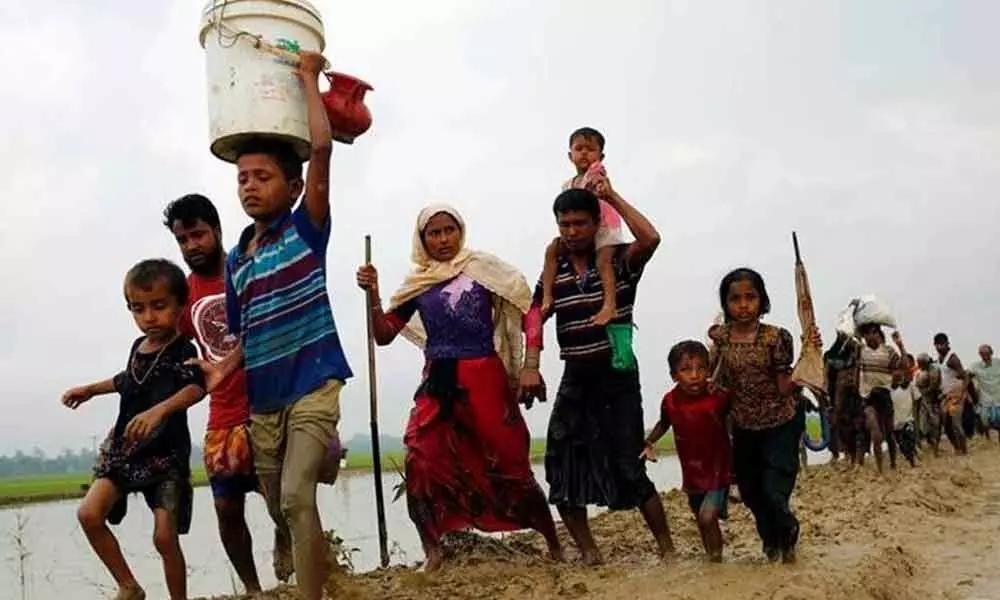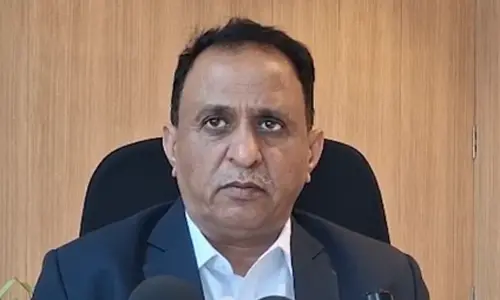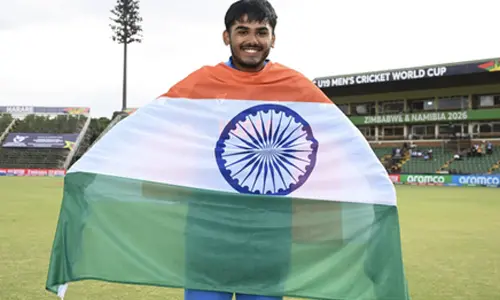Where do one lakh Sri Lankan Hindus go?

The Citizenship Amendment Act 2019 of India is discriminatory on several grounds. It does not promote equality but violates it.
The Citizenship Amendment Act 2019 of India is discriminatory on several grounds. It does not promote equality but violates it.
It destroys the secular character and Article 14, as 'religion' is made basis of discrimination. India did not include all neighbouring countries to fast track citizenship grant to immigrants.
Sri Lanka is a significant exclusion, because of which Hindus and Christians of island country may not become citizens of India, though the immigrants of these communities coming from Pakistan, Bangladesh, and Afghanistan could become.
It also means another discrimination - immigrants from southern neighbours to India were denied the benefits offered to those from northern neighbours.
The CAA thus has a potential of dividing people by region (south) and religion, and it excluded the migrants from Sri Lanka, Myanmar and Nepal of South Asia from its ambit.
Over 1,00,000 Sri Lankan refugees are estimated to be living in South India, having fled the country during the war from the 1980s onwards. Though armed hostilities ended in 2009, their return was a slow process.
Sri Lanka enacted the Grant of Citizenship to Persons of Indian Origin (Amendment) Act 2009 to remedy this problem. Due to lack of documentation, lapse of huge time and strict implementation of the provisions of the Act, it was highly difficult to establish their residence in Sri Lanka prior to becoming refugees.
Furthermore, children of citizens born in these refugee camps have not been able to register their births in accordance with Section 5(2) of the Citizenship Act 1948 of Sri Lanka, which is compulsory.
Especially in relation to the costs associated with registration and in absence of adequate documents to establish their parents' citizenship, caused greater difficulties and citizenship impossible to get.
Impact of CAA of India
With latest changes in Indian Citizenship law in 2019, where Sri Lanka is not mentioned as a country from where the refugees are not given citizenship, problem of one lakh Sri Lankan refugees in India has become more complex.
CAA aims to fast-track citizenship for persecuted Hindus, Parsis, Sikhs, Buddhists, Jains and Christians who arrived in India before December 31, 2014, from Muslim-majority Afghanistan, Bangladesh and Pakistan only.
Around 60,000 refugees are in camps in southern Tamil Nadu State, mostly Hindus or Christians whose forefathers were also born in India. Many were sent by the British as indentured labourers in Sri Lankan tea plantations.
Some 25,000 children were also born in the camps. They do not know any country but India, but now they may have no choice but to go to Sri Lanka.
In Tamil Nadu, the refugees get free education, healthcare, rations and a modest allowance but they have limited access to jobs and cannot get official documents. The decision to exclude some marginalised groups from the CAA was criticised as extremely disturbing.
Citizenship of Sri Lanka
The citizenship in island of Sri Lanka is a complex process because of its ancient history where the Sinhalese and the Tamils have been living for several centuries.
They have long history with cultural, religious, social, economic, political and military interrelationships within the subcontinent.
With multiple sea routes in the Indian Ocean, Sri Lanka had relations with the Greek, Roman, and Arab worlds to the west, and with Burma, Siam, and Java to the east.
Arab traders who settled in the island are the ancestors of the country's third largest ethnic community today, the Sri Lankan Moors.
The issue of citizenship was one of significant political importance even prior to independence, specifically in relation to the Up-Country Tamil community.
They were brought into Sri Lanka from parts of South India to work in the plantation sector during the British colonial rule. This community is distinct from local 'Sri Lankan Tamils' who have a long history in Sri Lanka, as well as the Indian citizens who resided in Sri Lanka for several years engaging in professions or business activities.
They also enjoyed greater influence among the political establishment.
The framers of the independent Sri Lankan constitution specifically avoided dealing with the issue of citizenship and franchise for the Up-Country Tamil community.
It was avoided because most of the ruling elite did not want to grant citizenship to the entirety (or even a sizable section) of the Up-Country Tamil community.
They also feared that any attempt to restrict citizenship would draw opposition from the government of India and could delay the process of gaining independence from the British.
Act of 1948
After independence, the Citizenship Act 1948 was made explaining the status of a citizen of Ceylon. A person obtained this status either by right of descent or by virtue of registration.
A provision for the legislature to enact other laws authorising the grant of such status was also made.
A person born in Sri Lanka before 15 November 1948 would be considered a citizen by descent only if such person's father was born in Sri Lanka, and if the father was not born in Sri Lanka, but that person's paternal grandfather and paternal great grandfather were both born in Sri Lanka.
A person born outside Sri Lanka before 15 November 1948 would also be considered a citizen, if their paternal ancestors were born in Sri Lanka.
A person born after November 1948 would be considered a citizen only if at the time of such person's birth their father was a citizen of Sri Lanka.
Under the Citizenship Act, the Minister has the power to issue a 'certificate of citizenship of Ceylon by descent' to a person if there was a doubt with respect to that person's status as a citizen of Ceylon by descent.
Such an application had to be supported by documentary evidence and by three persons who were also citizens by descent.
Though the Act provided for the status of citizenship by registration, the exacting qualifications and the high costs made it almost impossible for Up-Country Tamils to register. Apparently, the Act do not discriminate against any community.
But the manner of its implementation and poor socioeconomic conditions, it impacted the Up-Country Tamil community more adversely than any other. In fact, by its implementation the Act resulted in denial of citizenship to many of Up-Country Tamils.
The Citizenship Act recognises that Parliament can by any other law authorise the grant of the status of citizen by registration in any special case of a specified description.
The Indian and Pakistani Residents Citizenship Act 1949 was the first of such laws of Sri Lanka and would apply to an individual whose origin was in any territory which formed part of British India or any Indian State immediately prior to the passing of the UK's Indian Independence Act 1947.
It provided an avenue for such person or their descendants who had uninterrupted residence in Sri Lanka immediately prior to 1 January 1946 for a specified time and had uninterrupted residence from that day to the date of the application, to apply for registration as a citizen.
Registration as a citizen was conditional on that individual being able to satisfy the Commissioners that he had a lawful means of livelihood.
The term nationality has the same meaning as citizenship within the Sri Lankan legal system. Sri Lanka does not encourage naturalisation of foreign citizens.
Issue of statelessness in Sri Lanka
The issue of statelessness among the Up-Country Tamil community was a serious problem, resulted from post-Independence legislation on citizenship in Sri Lanka. It appears to have been resolved by changes in the law.
The present citizenship regime if implemented properly, will not exclude this community from the Sri Lankan State.
It is considered a global success story in resolving the issue of statelessness, but Sri Lanka still needs to deal with the impact of excluding the Up of Sri Lanka Country Tamil community from political life and denying them basic rights and freedoms for several decades.
Sri Lanka also has a complex responsibility now to tackle problem of taking one lakh refugees from India as hopes of getting Indian citizenship to them are diminished.
The statelessness stares at one lakh refugees from Sri Lanka.
(The writer is former Central Information Commissioner and Professor at Bennett University)














